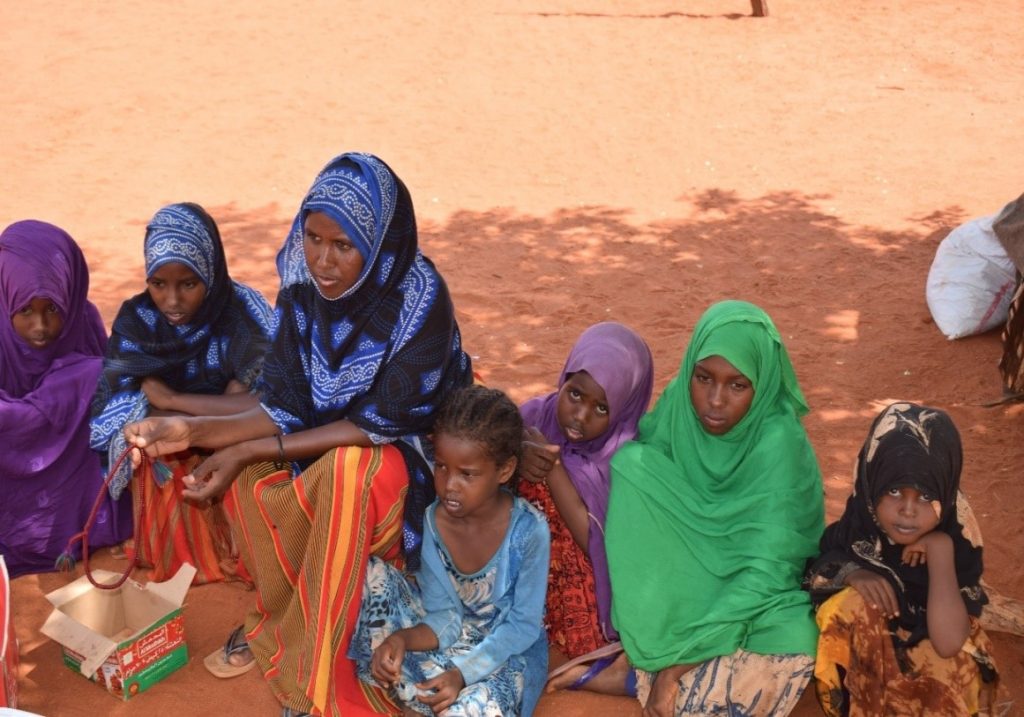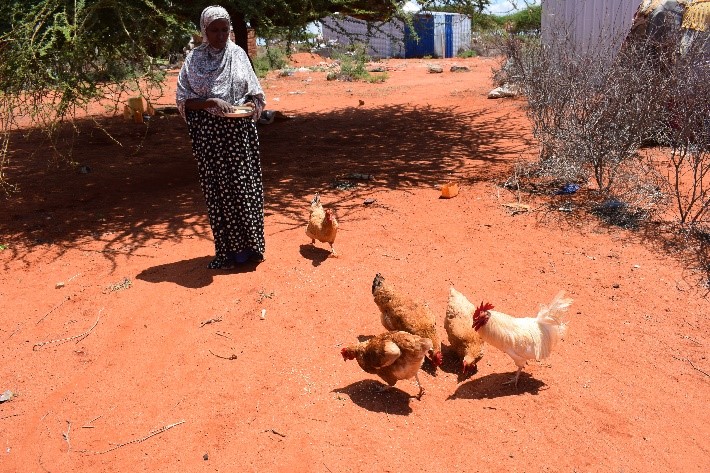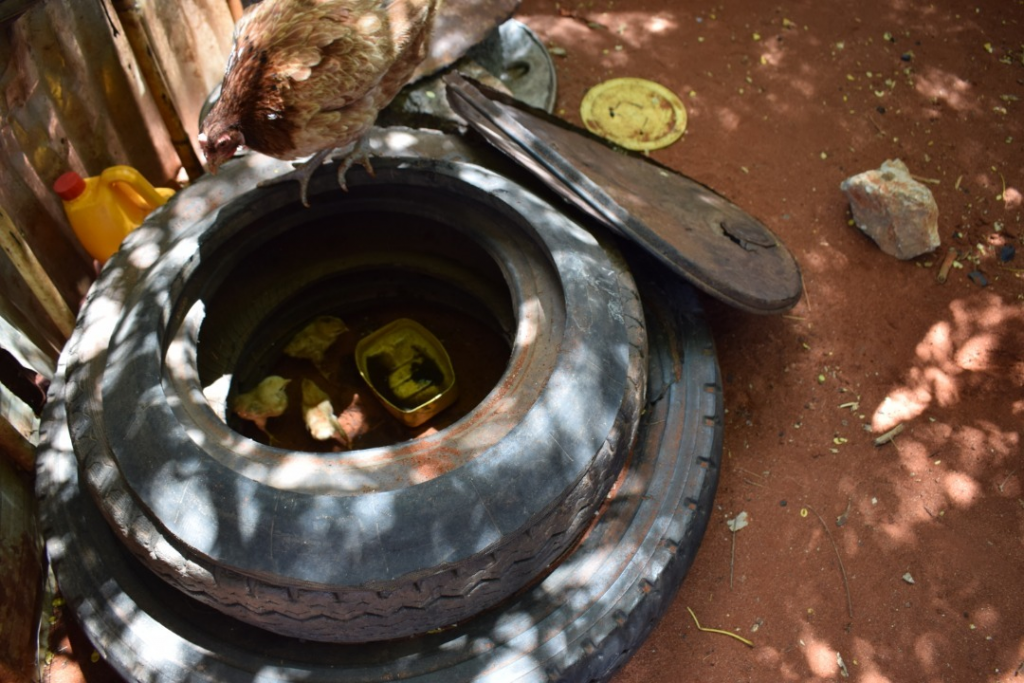The humanitarian situation in Somalia continues to be characterized by high levels of food insecurity, malnutrition, especially among women, children, persons living with disabilities, and the elderly. More so among 2.6 internally displaced persons and their vulnerable host communities in peri-urban and urban areas of the country. NAPAD humanitarian organization in partnership with Medico international(MI) through the funding of Germany Federal Foreign office (GFFO) is implementing a project that protects the livelihoods of vulnerable communities and promotes diversification to poultry rearing for improved nutrition of women of childbearing age and their children in South Central Somalia. This is with the aim of fulfilling Zero Hunger Global Commitment

Masbal Mohamed Cigal with her six children in Baligesh IDP camp
Masbal Mohamed Cigal aged 30 years is a single mother with 6 children living in Baligesh IDP camp in Abudwak district. She is among the people affected and displaced by the subsequent droughts and clan conflicts in the region and lost the little herd she had. Masbal normally earns a few coins daily by doing menial works such as cleaning clothes and cooking food in other people’s houses. Masbal is one of the 450 households in Abudwak and Dollow Districts who received four hens and a roster each to kickstart poultry rearing in their homesteads. The beneficiaries were also trained for 3 days on poultry rearing and treatment and nutritional benefits of consumption of poultry products for children, women, and other vulnerable members in their households.

Masbal feeding her chicken
“Before attending the poultry rearing training I knew nothing about chicken I used to think it just ordinary birds that don’t have any benefit to human beings. However, at the end of the training, I realized that poultry is very important in improving the nutrition status of malnourished children and pregnant women” said Masbal.
Masbal’s chicken brood has increased and she is now taking care of newly hatched chicks. Her chicken is also laying an average of 15 eggs per week. Some are prepared for household consumption through boiling, frying, or boiling of mixing with flour when preparing canjeera (a common Somali breakfast dish). The surplus earns her extra income.

Masbal’s newly hatched chicks
“I normally sell the excess eggs to my neighbors and sometimes at the market, selling at 0.25 dollar per egg, generating me come income to buy other food commodities for the family.”
masbal
